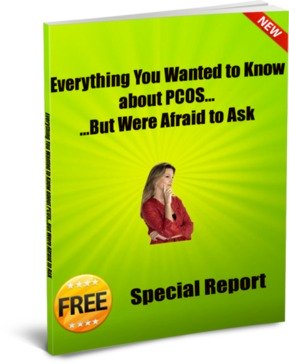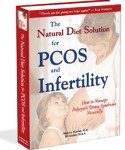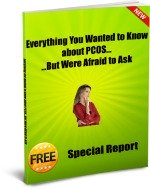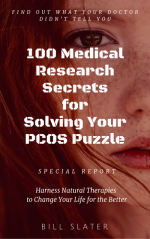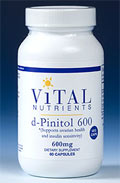Hypoglycemia and PCOS
Have you ever experienced symptoms like shakiness, sweating, weakness and excessive hunger after a meal? This situation is called "reactive hypoglycemia", or low blood sugar in response to a meal.
You've probably heard that women with polycystic ovarian syndrome have a problem with their blood sugar being too high, not too low.
So what's going on?
The problem is the refined carbohydrates, sweets and sugar in your meals.
When you take in a lot of refined carbs and sugar at one time, your blood sugar can increase too much and too fast. So, the body has to respond to this critical problem.
For one thing, your body will produce more insulin to bring your blood sugar down. When you're digesting a lot of refined carbs, you tend to overproduce insulin, which makes your blood sugar drop too much. Now have hypoglycemia.
By the way, if you always have too much insulin floating around, it stimulates your ovaries to increase male hormone production, and stimulates your pituitary gland to produce more LH (luteinizing hormone). You don't want either of these things to happen.
In addition, your pancreas gland can get worn out from producing insulin all the time. At some point, you won't be able to produce enough insulin and you have the chronically high blood sugar levels associated with diabetes.
Your adrenal and pituitary glands also respond when you have reactive hypoglycemia after a meal. It appears that in response to hypoglycemia, they produce a number of hormones (cortisol, DHEA, growth hormone, etc.), which have the effect of increasing your weight and insulin resistance.
When you consume a diet that is laden with refined carbohydrates or sugar, and when you nibble away on sweets, you have excessive blood sugar fluctuations that in effect force your glands and organs to make your PCOS problems worse. That includes infertility, obesity, hirsutism, hair loss, acne and all the rest.
It's not just a matter of counting calories. What you eat will determine whether your glands and organs will help you to overcome PCOS, or simply send you into a vicious downward cycle with your health.
So it's quite important that you fully understand what a refined carbohydrate is. It's to your advantage to stay away from refined carbohydrates, sugars of all kinds, and sweets of all kinds. If you're not sure about the issue of "good carbs" vs. "bad carbs", I would suggest you read The Natural Diet Solution for PCOS and Infertility e-book, which has an in-depth explanation of carbohydrates.
Sources:
Farshchi H et al, Diet and nutrition in polycystic ovary syndrome (PCOS): pointers for nutritional management, J Obstet Gynaecol. 2007 Nov;27(8):762-73
Gurusinghe D et al, In polycystic ovary syndrome, adrenal steroids are regulated differently in the morning versus in response to nutrient intake, Fertil Steril. 2010 Mar 1;93(4):1192-9
Kasim-Karakas SE et al, Relation of nutrients and hormones in polycystic ovary syndrome, Am J Clin Nutr. 2007 Mar;85(3):688-94
PCOS Health Review
This free newsletter gives you original and immediately usable information to help you deal with PCOS.
Get the latest research, tips for improving your health, answers to questions, success stories, and more!
Your e-mail address is totally secure. We will never misuse your information.
Enter Your Email Above to Subscribe Today
and Get Your Questions Answered in this Free Special Report!
